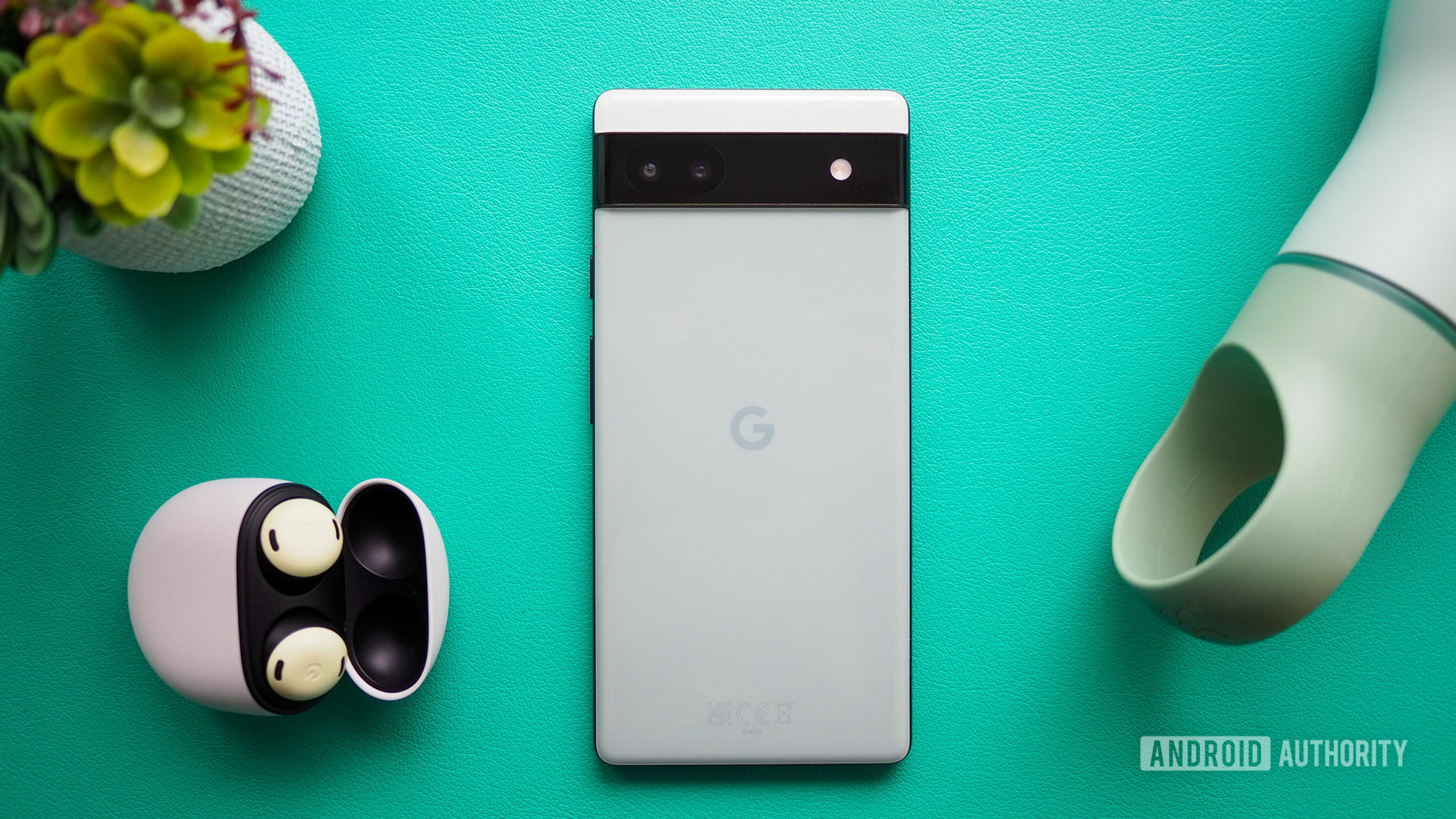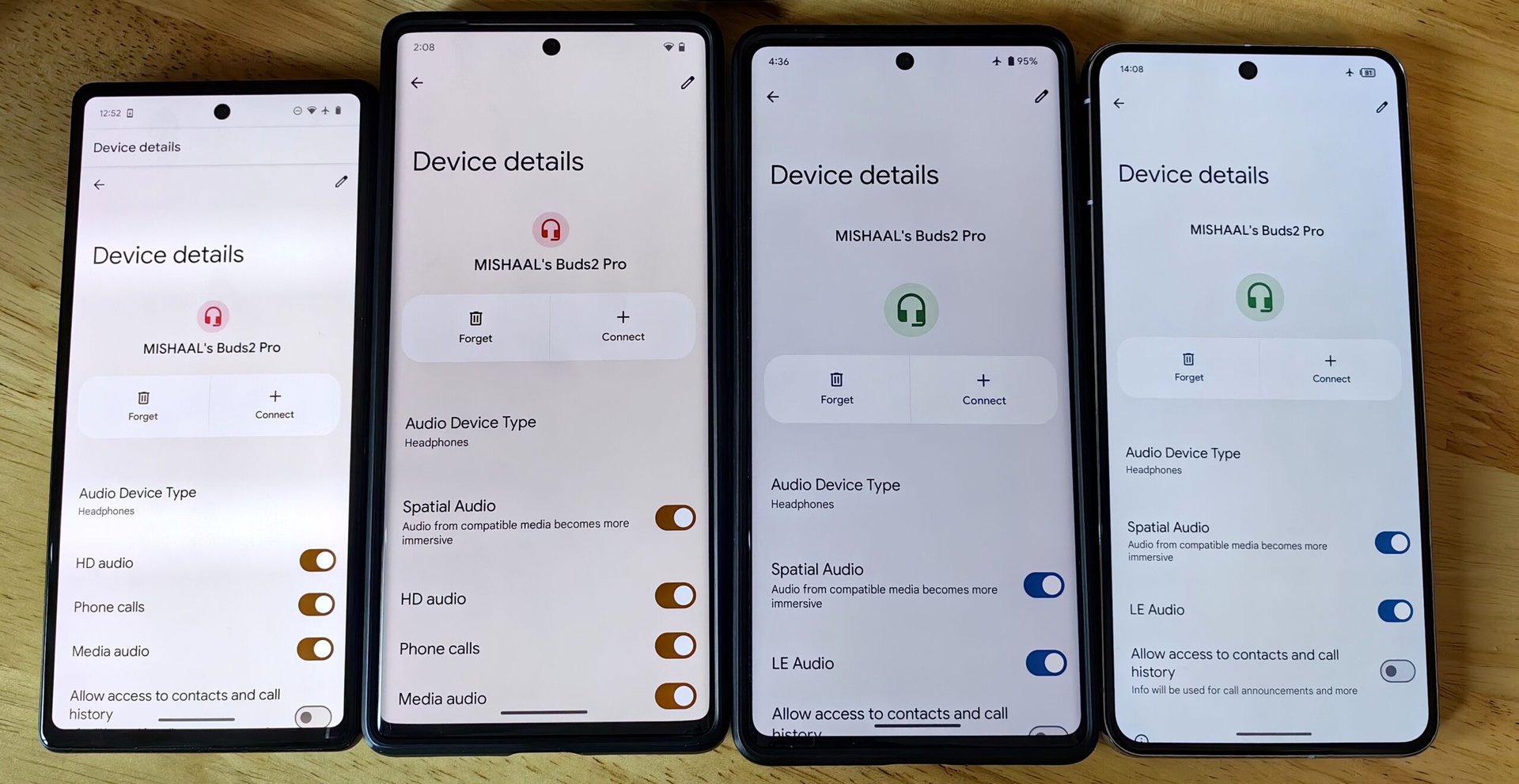Affiliate links on Android Authority may earn us a commission. Learn more.
Google's Pixel 6 series appears to miss out on Bluetooth LE Audio support
Published onMay 9, 2024

- The Google Pixel 6, Pixel 6 Pro, and Pixel 6a don’t seem to support Bluetooth LE Audio, the standard that defines audio streaming over Bluetooth Low Energy.
- Bluetooth LE Audio enables lower latency, higher quality audio streaming via the LC3 codec, as compared to the standard SBC codec used by Bluetooth Classic Audio.
- By missing out on Bluetooth LE Audio support, the Pixel 6 series will also miss out on Android 15’s new audio streaming feature, which is based on Auracast.
Although Bluetooth LE Audio was announced at the beginning of 2020, there still aren’t that many audio products on the market that support it. In 2024, though, we’re finally seeing many audio products come on the market with LE Audio support either out of the box or soon in a future update. However, to actually take advantage of LE Audio’s numerous benefits and new features, you need to own a mobile device or PC that supports the standard. Unfortunately, if you own a Google Pixel 6, Pixel 6 Pro, or Pixel 6a, then you may need to upgrade your phone entirely to use Bluetooth LE Audio.
When you connect your phone to a pair of wireless earbuds, the source device (your phone) and the sink device (your wireless earbuds) establish a connection via their Bluetooth radios. During the pairing process, the devices negotiate to find out what profiles they both support. These profiles define how the two devices exchange data. The profile typically used for streaming audio from the source to the sink device over Bluetooth is called the Advanced Audio Distribution Profile (A2DP). The exact codec that’s used to store the audio data that’s transmitted between the two devices depends on what codecs both devices support, but at a minimum, both devices must support the low-complexity subband codec (SBC).
Conceptually, Bluetooth LE Audio isn’t all that different from Bluetooth Classic Audio (the name given to audio data exchanges over the A2DP profile). However, LE Audio uses Bluetooth Low Energy instead of classic Bluetooth (hence the “LE” in “LE Audio”), which means it theoretically draws less power. Furthermore, the baseline codec that two Bluetooth LE Audio-supporting devices must support is the low-complexity communications codec (LC3). Compared to SBC, LC3 provides higher audio quality, lower latency, and the same power consumption at the same bit rate. Of course, the exact power consumption, audio quality, and latency differences will depend on the actual codec used (most high-quality Bluetooth audio devices support codecs other than SBC, for example).
Another benefit of Bluetooth LE Audio is that it supports a new feature called Auracast. Auracast enables one-to-many audio broadcasts without the hassle of pairing. It’s the basis of audio sharing, a new feature coming in Android 15. Devices that support Bluetooth LE Audio don’t automatically support Auracast (though they can be updated to do so), but devices that don’t support LE Audio can’t support Auracast (unless it’s possible for them to be updated to support LE Audio).
That brings us to the Pixel 6, Pixel 6 Pro, and Pixel 6a. While all three devices have a Bluetooth chip that supports version 5.2 of the Bluetooth Core Specification — the first version of the Bluetooth spec that defines LE Audio — none appear to support LE Audio right now. During testing, I paired the same pair of Samsung Galaxy Buds 2 Pro to my Pixel 6a, Pixel 6 Pro, Pixel 7 Pro, and Pixel 8 Pro. While my Pixel 7 Pro and Pixel 8 Pro were allowed to toggle LE Audio when connected to my Galaxy Buds 2 Pro, the “LE Audio” toggle did not appear for either my Pixel 6a or my Pixel 6 Pro. All four devices were running fairly new builds of Android (a mix of Android 14 QPR/Android 15 betas), so it’s not as if I was simply behind on updates.

Either Google has chosen not to enable Bluetooth LE Audio on any of its Tensor G1-touting Pixel smartphones, or it simply can’t enable it for whatever reason. Hopefully, it’s the former because, without LE Audio support, these three phones will be forced to miss out on one of Android 15’s best new features (audio sharing).